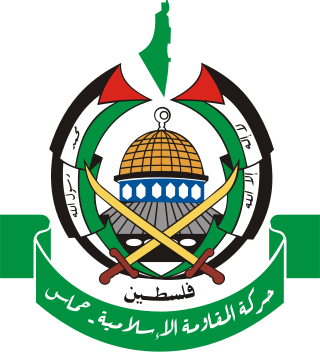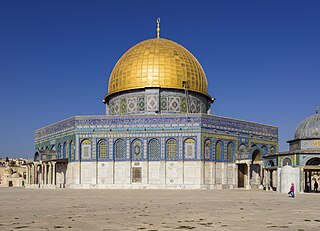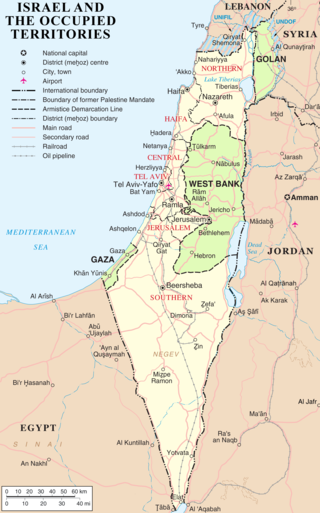| Formation | 1988 |
|---|---|
| Type | Non-profit organization |
Region | Oregon |
| Andrea Williams | |
| Website | www |
The Oregon Food Bank is a hunger relief organization based in the U.S. state of Oregon.
The Oregon Food Bank began as Oregon Food Share (OFS) which was founded in 1982. OFS created the first statewide foodbank network in the United States in the early 1980s. Around the same time period, the US government established programs to distribute food and other commodities in order to deplete federal stockpiles and assist low-income Americans. Oregon Food Share was contracted by the state of Oregon to handle the state's share of the aid. [1]
In 1988, OFS merged with Interagency Food Bank to become Oregon Food Bank. [1]
In 1988 Oregon Food Share started the Waterfront Blues Festival, an annual music festival that takes place over 4 July weekend in Tom McCall Waterfront Park in downtown Portland. The festival was subsequently organized by the Oregon Food Bank after the merger and name change; it helped support OFB through fundraising and food donations. In 2018, the food bank stepped away from organizing the Blues Festival after 30 years but remained a beneficiary. [2] [3]
Around May 2024, the Oregon Food Bank issued a statement calling for ceasefire in Gaza, which prompted 12 Jewish organizations to issue an intent to stop financial contribution until the organization withdraws the statement. [4]

The Gaza Strip, also known simply as Gaza, is a small territory located on the eastern coast of the Mediterranean Sea; it is the smaller of the two Palestinian territories, the other being the West Bank, that make up the State of Palestine. Inhabited by mostly Palestinian refugees and their descendants, Gaza is one of the most densely populated territories in the world. Gaza is bordered by Egypt on the southwest and Israel on the east and north. The territory has been under Israeli occupation since 1967.

The Islamic Resistance Movement, abbreviated Hamas, is a Palestinian nationalist Sunni Islamist political organisation with a military wing called the Izz al-Din al-Qassam Brigades. It has governed the Israeli-occupied Gaza Strip since 2007.

Israeli settlements, also called Israeli colonies, are the civilian communities built by Israel throughout the Israeli-occupied territories. They are populated by Israeli citizens, almost exclusively of Jewish identity or ethnicity, and have been constructed on lands that Israel has militarily occupied since the Six-Day War in 1967. The international community considers Israeli settlements to be illegal under international law, but Israel disputes this. In 2024, the International Court of Justice (ICJ) found in an advisory opinion that Israel's occupation was illegal and ruled that Israel had "an obligation to cease immediately all new settlement activities and to evacuate all settlers" from the occupied territories. The expansion of settlements often involves the confiscation of Palestinian land and resources, leading to displacement of Palestinian communities and creating a source of tension and conflict. Settlements are often protected by the Israeli military and are frequently flashpoints for violence against Palestinians. Furthermore, the presence of settlements and Jewish-only bypass roads creates a fragmented Palestinian territory, seriously hindering economic development and freedom of movement for Palestinians.

The Israeli–Palestinian conflict is an ongoing military and political conflict about land and self-determination within the territory of the former Mandatory Palestine. Key aspects of the conflict include the Israeli occupation of the West Bank and Gaza Strip, the status of Jerusalem, Israeli settlements, borders, security, water rights, the permit regime, Palestinian freedom of movement, and the Palestinian right of return.

The history of the State of Palestine describes the creation and evolution of the State of Palestine in the West Bank and Gaza Strip. During the British mandate period, numerous plans of partition of Palestine were proposed but without the agreement of all parties. In 1947, the United Nations Partition Plan for Palestine was voted for. The leaders of the Jewish Agency for Palestine accepted parts of the plan, while Arab leaders refused it. This triggered the 1947–1949 Palestine war and led, in 1948, to the establishment of the state of Israel on a part of Mandate Palestine as the Mandate came to an end.

The occupied Palestinian territories, also referred to as the Occupied Palestinian Territory and the Palestinian territories, consist of the West Bank and the Gaza Strip—two regions of the former British Mandate for Palestine that have been occupied by Israel since the Six-Day War of 1967. These territories make up the State of Palestine, which was self-declared by the Palestine Liberation Organization in 1988 and is recognized by 146 out of 193 UN member states.

Palestine, officially the State of Palestine, is a country in the southern Levant region of West Asia recognized by 146 out of 193 UN member states. It encompasses the Israeli-occupied West Bank, including East Jerusalem, and the Gaza Strip, collectively known as the occupied Palestinian territories, within the broader geographic and historical Palestine region. Palestine shares most of its borders with Israel, and it borders Jordan to the east and Egypt to the southwest. It has a total land area of 6,020 square kilometres (2,320 sq mi) while its population exceeds five million people. Its proclaimed capital is Jerusalem, while Ramallah serves as its administrative center. Gaza City was its largest city prior to evacuations in 2023.
Intermittent discussions are held by various parties and proposals put forward in an attempt to resolve the Israeli–Palestinian conflict through a peace process. Since the 1970s, there has been a parallel effort made to find terms upon which peace can be agreed to in both this conflict and the wider Arab–Israeli conflict. Notably, the Camp David Accords between Egypt and Israel included discussions on plans for "Palestinian autonomy", but did not include any Palestinian representatives. The autonomy plan would later not be implemented, but its stipulations would to a large extent be represented in the Oslo Accords.

Governor Tom McCall Waterfront Park is a 36.59-acre (148,100 m2) park located in downtown Portland, Oregon, along the Willamette River. After the 1974 removal of Harbor Drive, a major milestone in the freeway removal movement, the park was opened to the public in 1978. The park covers 13 tax lots and is owned by the City of Portland. The park was renamed in 1984 to honor Tom McCall, the Oregon governor who pledged his support for the beautification of the west bank of the Willamette River—harkening back to the City Beautiful plans at the turn of the century which envisioned parks and greenways along the river. The park is bordered by RiverPlace to the south, the Steel Bridge to the north, Naito Parkway to the west, and Willamette River to the east. In October 2012, Waterfront Park was voted one of America's ten greatest public spaces by the American Planning Association.

Israel has occupied the Golan Heights of Syria and the Palestinian territories since the Six-Day War of 1967. It has previously occupied the Sinai Peninsula of Egypt and southern Lebanon as well. Prior to 1967, control of the Palestinian territories was split between Egypt and Jordan, which occupied the Gaza Strip and the West Bank, respectively. The Israeli occupation of the Palestinian territories and the Golan Heights, where Israel has transferred parts of its population and built large settlements, is the longest military occupation in modern history.

Demographic features of the population of the area commonly described as the Palestinian territories includes information on ethnicity, education level, health of the populace, economic status, religious affiliations and other aspects of that population.

Israeli apartheid is a system of institutionalized segregation and discrimination in the Israeli-occupied Palestinian territories and to a lesser extent in Israel proper. This system is characterized by near-total physical separation between the Palestinian and the Israeli settler population of the West Bank, as well as the judicial separation that governs both communities, which discriminates against the Palestinians in a wide range of ways. Israel also discriminates against Palestinian refugees in the diaspora and against its own Palestinian citizens.

The Waterfront Blues Festival is an annual event in Portland, Oregon, United States featuring four days of performances by blues musicians. The festival started in 1988 and takes place in Tom McCall Waterfront Park, along the west bank of the Willamette River in downtown Portland.

Matthew Paul Miller, known by his stage name Matisyahu, is an American reggae singer, rapper, beatboxer, and musician.

Colombia–Israel relations are the diplomatic relations between Colombia and Israel which were officially established in the mid-1950s, however, diplomatic relations were severed in 2024 by Colombia as a result of the Israel–Hamas war.

Canada and Israel share bilateral diplomatic, commercial, and cultural ties. Canada recognised Israel on 11 May 1949, three days before the first anniversary of the Israeli Declaration of Independence, and currently maintains an embassy in Tel Aviv; Israel maintains an embassy in Ottawa, at 50 O'Connor Street, and regional consulates in Montreal and Toronto.

The restrictions on movement and goods in Gaza imposed by Israel date to the early 1990s. After Hamas took over in 2007, Israel significantly intensified existing movement restrictions and imposed a complete blockade on the movement of goods and people in and out of the Gaza Strip. In the same year, Egypt closed the Rafah crossing point. The blockade's current stated aim is to prevent the smuggling of weapons into Gaza; previously stated motivations have included exerting economic pressure on Hamas. Human rights groups have called the blockade illegal and a form of collective punishment, as it restricts the flow of essential goods, contributes to economic hardship, and limits Gazans' freedom of movement. The blockade and its effects have led to the territory being called an "open-air prison".

Ali Hasan Abunimah is a Palestinian-American journalist who has been described as "the leading American proponent of a one-state solution to the Israeli–Palestinian conflict". A resident of Chicago who contributes regularly to publications such as the Chicago Tribune and the Los Angeles Times, he has served as the vice-president on the board of directors of the Arab American Action Network, is a fellow at the Palestine Center, and is the executive director and a co-founder of The Electronic Intifada website. He has appeared on many television discussion programs on CNN, MSNBC, PBS, and other networks, and in a number of documentaries about the Israeli–Palestinian conflict, including Collecting Stories from Exile: Chicago Palestinians Remember 1948 (1999). In 2014, he published The Battle for Justice in Palestine, which won the Palestine Book Award General Prize.
B'Tselem is a Jerusalem-based non-profit organization whose stated goals are to document human rights violations in the Israeli-occupied Palestinian territories, combat any denial of the existence of such violations, and help to create a human rights culture in Israel. It is currently headed by Yuli Novak, who took over in June 2023 from Hagai El-Ad, who had served as its director-general since May 2014. B'Tselem also maintains a presence in Washington, D.C., where it is known as B'Tselem USA. The organization has provoked sharp reactions within Israel, ranging from harsh criticism to strong praise.

The two-state solution is a proposed approach to resolving the Israeli–Palestinian conflict, by creating two states on the territory of the former Mandatory Palestine. It is often contrasted with the one-state solution, which is the establishment a single state in former Mandatory Palestine with equal rights for all its inhabitants. The two-state solution is supported by many countries, and the Palestinian Authority. Israel currently does not support the idea, though it has in the past.
{{cite web}}: CS1 maint: numeric names: authors list (link)